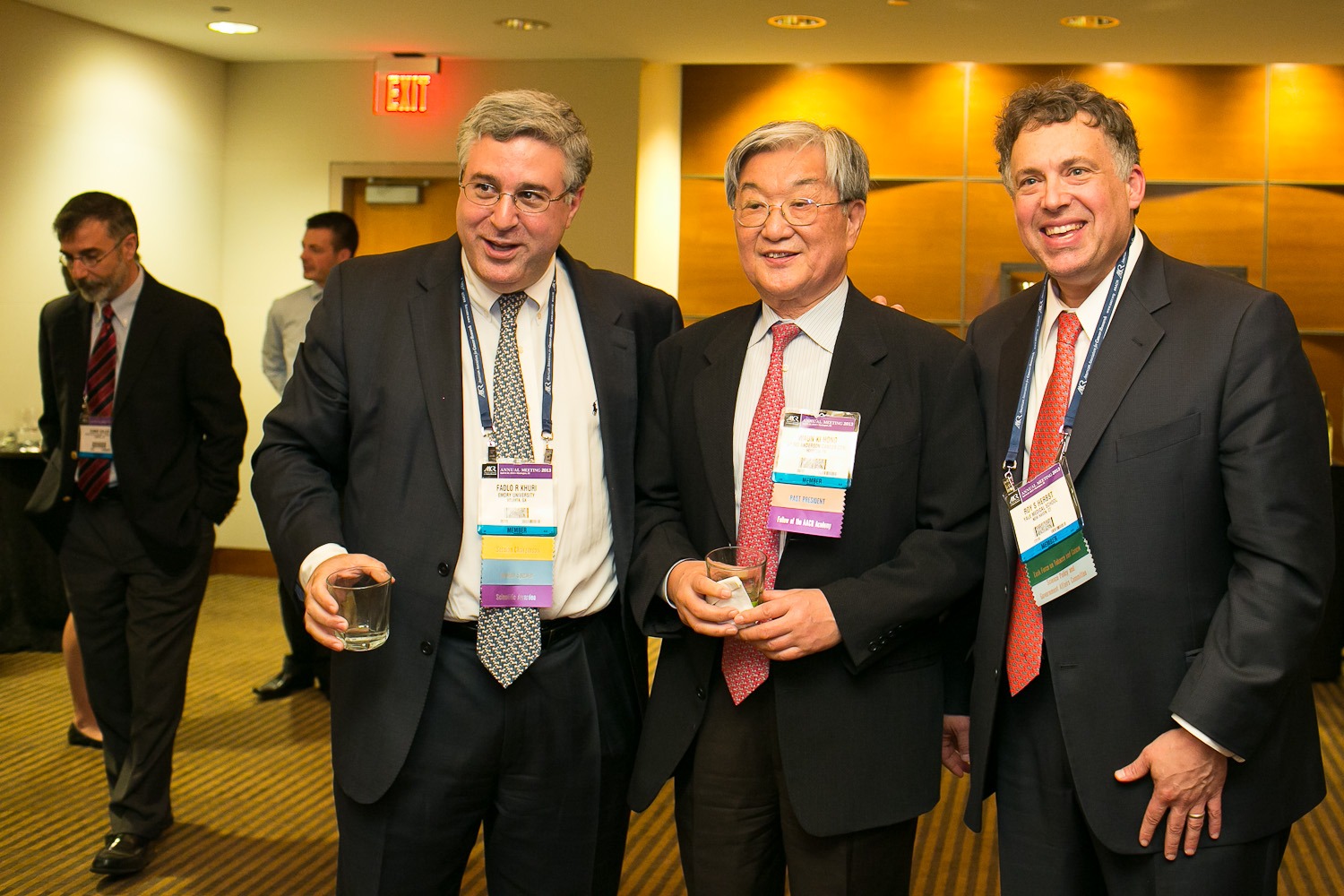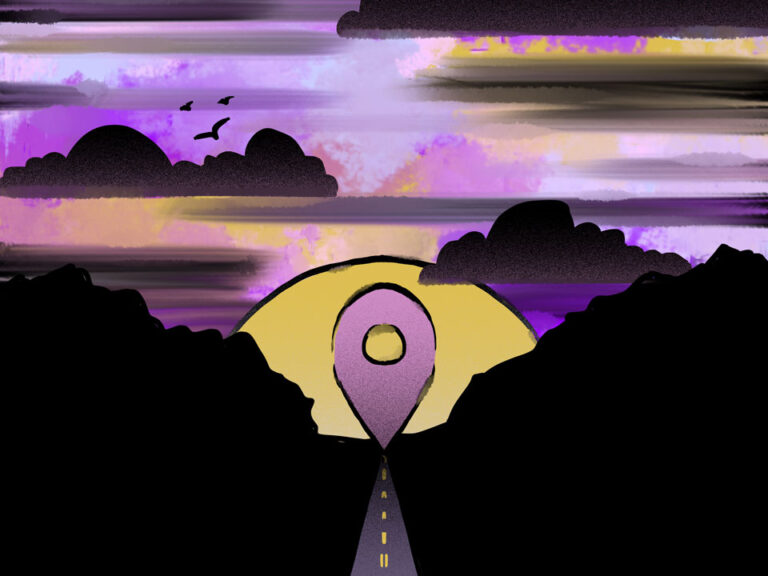

Yesterday, I received a succession of phone calls through the afternoon and evening—from Roy Herbst, chief of medical oncology at the Yale Cancer Center, Marge Foti, president of the American Association for Cancer Research, Patrick Hwu, head of the Division of Cancer Medicine at the MD Anderson Cancer Center (MDACC), and Otis Brawley, professor of oncology at Johns Hopkins University.
They all wanted to know if I had heard the terrible and unexpected news that Waun Ki Hong had passed away—and to check that I was OK. In circumstances like this, OK is a relative term, but my first thoughts are with the man himself and his family. And what a man he was.
Waun Ki Hong’s contributions to medicine changed the field as we know it. Partnering with Gregory Wolf at the Boston VA Medical Center, he led the first major larynx preservation study, which opened the door to his pioneering work on the clinical chemoprevention of cancer.
At MDACC, with Reuben Lotan and Walter Hittleman, and others, he ushered in the era of large multi-investigator, peer-reviewed translational research grants before they became the norm.
As head of the Division of Cancer Medicine at MDACC, with former president John Mendelsohn, he established the institution as the world’s leading clinical and translational cancer research and care center.
Dr. Hong—or Ki, as he preferred that we all called him—mentored and nurtured scores of translational researchers over several generations, and from all over the world. He lived by the credo of Red Auerbach, the great Boston Celtics Coach, who when asked about fielding the first all-black team in the NBA was said to have answered: “I don’t care if they are black, or white, green, or purple, as long as they can play basketball.” Ki abided by that principle in oncology, medicine, science, and life.
In science and in medicine, Ki left nothing to chance. He authored more than a dozen papers in the New England Journal of Medicine, a number only exceeded by the breast cancer specialist Bernard Fisher among the oncologic researchers of his era.
Ki was many things: professor, pioneer, physician, scientist, leader, innovator, friend, and mentor to so many.
Born in Korea in 1942, the sixth of seven children in a small suburb outside Seoul, Ki was someone who made the most of his talent by, as he described it, being unafraid to “tackle on the muddy ground.”
Despite his modest origins, and his misfortune to grow up through two devastating wars, World War II and the 1950 Korean War, he was fortunate to have an older brother to look up to and in whose footsteps he could follow, the distinguished physiologist and scientist Suk Ki Hong.
During his career, Waun Ki Hong’s humility and enthusiasm for teamwork became legendary, in Boston, in Houston, and internationally. He was a man who had the habit of telling people, perhaps with more modesty than accuracy, how much smarter they were than him. His considerable abilities and intellect snuck up on you, as did his subtle sense of humor.
Among the things that were never subtle about Ki were his drive to make a difference for patients and in his field, his love of family, his devotion to scores of trainees and protégés like me whose lives and careers he helped shape, and his near fanatical allegiance to the Boston Red Sox.
Our mutual love for the Red Sox was tested in my initial job interview when he grilled me on the batting averages, home runs, and RBI’s of the great but unlucky Red Sox team of 1978.
But the man certainly had charisma and a way to make people feel genuinely important. That initial interview and my first visit to MD Anderson left quite an impression.
Mere weeks before the end of my fellowship at Tufts New England Medical Center Hospital, with $2,200 in our bank account and debts of $77,000, he offered me a one-year instructor contract and I headed west with my pregnant wife Lamya and our year-old daughter Layla, with the explicit purpose of being mentored by Ki Hong at MD Anderson in Houston. Like so many physicians and scientists who were to come under his watch, it was one of the best and most important decisions of my life.
Almost 10 years after that initial interview, and a decade when he would prove the consummate mentor and friend in good times and bad, the Red Sox finally won the World Series in 2004 for the first time since 1918.
My first call was to Ki to tell him the world was perfect and that I loved him. “You make me laugh, my friend,” he said, “but you are right.”
On May 22, 2015, Ki threw out the first pitch at Boston’s Fenway Park, an honor accorded to American presidents, senators, statesmen, and cancer titans. Not too bad for a Vietnam War veteran who had started his career in America caring for other veterans in that city.


– Photo courtesy of Emory University
Where does one start in moments like these, when the pain of loss is matched by the profound sense of grace for having had the man in our lives, in my own life for a quarter-century?
Ki was so many things to me and so many others.
A role model, father confessor, older sibling, course corrector, inspiration, and friend. He taught me that you should never believe your press clippings when things were rolling in your favor and never give in to your critics when you felt they had you by the throat. On more than one occasion, when I was flying too high, he brought me down to earth; and when things were darkest, he was always there to show me the way.
When I left Houston to move to Atlanta and Emory in 2002, Daniel Karp, a close mutual friend who had first recommended me to Ki almost a decade earlier, told me that if I ever got into any serious trouble, Ki Hong and Reuben Lotan would be on the first plane from Houston to rescue me.
They both visited several times, and I was proud and relieved that I never needed to call for a rescue by these two magnificent men whom I had grown to love and admire. But it was wonderful to see them, especially to celebrate Ki’s never-ending list of awards, capped by his deserved and overdue election to the Institute of Medicine.
I was honored to help organize his Festschrift, which went off like a charm, largely thanks to the magic of Wendy Austin and Sue Davis, stalwart organization by my fellow event chairs Roy Herbst, Patrick Hwu, and Scott Lippman, director of the University of California at San Diego Moores Cancer Center, and the fundraising of Waun Ki Hong himself.
That evening, we excitedly smuggled in another of my favorite mentors, the matchless Howard Koh, a fellow Korean American (and Red Sox fan), who was then serving as assistant secretary of health for the United States.
![Autobio 11[3]](https://cdn.cancerletter.com/media/2019/01/Autobio-113.jpg)
![Autobio 11[3]](https://cdn.cancerletter.com/media/2019/01/Autobio-113.jpg)
– Photo courtesy of private collection of Waun Ki Hong
Howard, who served longer in that vital position than any other American in the history of the Republic, was someone whom Ki had known for years and whom he intensely admired, which is why we were determined to bring him as keynote speaker during the dinner ceremony.
He lived by the credo of Red Auerbach, the great Boston Celtics Coach, who when asked about fielding the first all-black team in the NBA was said to have answered: ‘I don’t care if they are black, or white, green, or purple, as long as they can play basketball.’ Ki abided by that principle in oncology, medicine, science, and life.
“Fadlo!” Ki exclaimed. “Did you really think I wouldn’t figure out you would bring Howard Koh in to the dinner?” But I knew that he was thrilled and humbled, and yes, more than a little bit surprised.
Perhaps in this moment of great loss, I can share some far more eloquent words of consolation with Ki’s family, with Mihwa, Ed, Burt, and their families, and especially with Ki’s beloved grandchildren, from one of the finest speeches I have ever listened to.
Bobby Kennedy’s famous speech was given on the back of a pick-up truck in 1968, a tough year for America, a year Ki Hong served in the Korean Army as a flight surgeon transporting the wounded from Saigon and Vietnam.
After learning of the death of Martin Luther King, Robert Kennedy started haltingly, but the poignancy and sincerity in his speech was always evident. And then he referenced something—some words—that had helped him.
Kennedy said:
“My favorite poet was Aeschylus. He once wrote, ‘And even in our sleep, pain which cannot forget falls drop by drop upon the heart,until in our own despair, against our will,comes wisdom through the awful grace of God.’”
Rest in Peace, Waun Ki Hong. You did it all—helped guide, care for, and inspire a league of individuals and teams, people who will never forget you. And for your students, of whom I am but one of legions, you are and always will be our Mentor Magnificus.
Services for Dr. Hong will be held Jan. 12, 2019 in Newport Beach, CA.
The author is president of the American University of Beirut.










